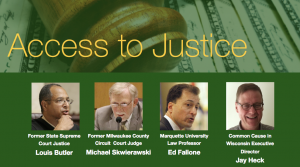Appellate Work: Getting the Law Right
Recently, I authored a post on this same blog discussing the first of two frequent observations I’ve made since joining the Milwaukee County District Attorney’s Office as a prosecutor and rookie lawyer in February of last year. There, I expressed my belief that we must do more to educate the nonlegal public about what it is we do as lawyers. Here, however, I wish to share what is perhaps as much a personal conclusion as it is an observation—appellate work is where it’s at.
In the last six or so months, I’ve been tasked on several occasions to represent the State before the Wisconsin Court of Appeals. These experiences have been enjoyable for several reasons—not the least of which is that I do enjoy writing about the law.
More generally, I have come to prefer legal argument over arguing facts. For these reasons, I expect that my career in the law will naturally gravitate toward appellate work. This is not to say I that I don’t enjoy trying cases to juries, but rather it is acknowledgment of one introspective observation.
As I’ve arrived at this conclusion, I’ve also realized that I’m most interested in getting the law right—regardless of whether doing so helps or hurts any particular position I’ve taken in a case. That said, what I find most appealing about appellate work is that I’ve come to believe that appellate courts generally prioritize getting it right above all else.


